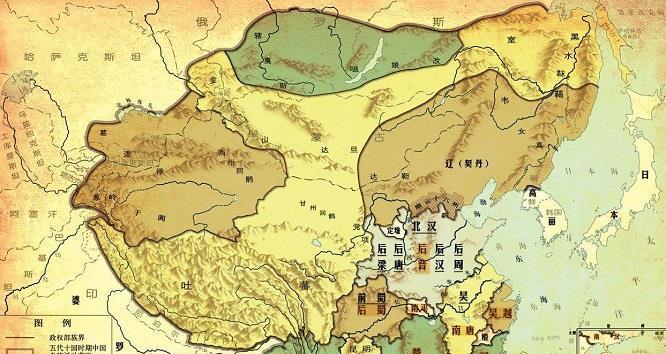The Tang Dynasty was one of the most prosperous dynasties in China's history, with strong national strength, vast fields, abundant treasury, and a hundred flowers of culture and economy, creating the famous "Kaiyuan Prosperous Era" in history. During the Tang Dynasty, there were also many brave generals, Guo Zhiyun, who had repeatedly achieved success and had excellent courage; Gao Kan, who guarded the border and was both literate and martial; Li Jing, who was good at using troops and was proficient in strategy, the most famous of which was Li Maozhen, the "King of Qi".

The Tang Dynasty was the world of the Li surname, and the surname "Li" represented honor. Li Maozhen's original name was Song Wentong, and Li Maozhen was given the name of the emperor, which shows that the emperor treated him very seriously. Li Maozhen was strong in strength, holding the power of 45 states in his hands, and the power was shocking the west, but why did Li Maozhen, who had such a brilliant record, not unify the world?
At the end of the Tang Dynasty, the local feudal kings were too powerful, the imperial court was chaotic, the power of the emperor was suppressed, and the people were not happy, at this time many peasants rose up. Li Maozhen was only an ordinary general in the Tang army in his early years, and by chance, he joined the ranks of suppressing the peasant uprising, and Li Maozhen's power began to gradually expand, so that later when the emperor was surrounded by the rebel army, it was Li Maozhen who led the army to attack the rebel army and escorted the emperor back to the palace. At this point, Li Maozhen was appreciated by the emperor, and his career rose steadily, and he was named a thrifty envoy. In the process of suppressing the rebel army, Li Maozhen began to accumulate contacts, and with the power struggle between the kings of the clan, Li Maozhen took advantage of this opportunity to take the surrounding clan towns into his hands and became the most powerful person on the side.
As Li Maozhen's power grew larger and larger, there were many conflicts with the forces of the Tang court, Li Maozhen had a strong personality, and excessive pride and complacency made the emperor treat Li Maozhen with contempt. Li Maozhen was even more arrogant, and even threatened the emperor to give him the title of King of Qi, Li Maozhen not only ran amok in the imperial court, but also ignored a number of ministers, he forcibly occupied some weak territories, and gradually this behavior brought disaster to him. The emperor promoted Zhu Wen's power and position to suppress Li Maozhen, and at the same time joined hands with some generals who were usually suppressed to attack Li Maozhen. Gradually, Li Maozhen's forces were expelled from many areas.
The reason why Li Maozhen did not unify the whole country was that his strength was not strong enough, and the areas he occupied had a great influence on the economy and population after peasant uprisings and battles for the kings of the clans. Li Maozhen, who had a weak foundation, was unable to compete with Zhu Wen's generals for the world, and in the war with Zhu Wen, Li Maozhen was defeated and retreated, and soon most of the power in his hands was lost, and all the territory he controlled was plundered by Zhu Wen.
In the later period, Li Maozhen began to enjoy a luxurious life, leaving the affairs of the world behind, and when Zhu Wen went to war with other generals, he just watched silently and had no other thoughts. Many historians commented that Li Maozhen had the ability but no brains, from the beginning of the confrontation with the emperor's forces, to the later period did not know how to pull gangs and factions, Li Maozhen's failure was doomed, not to mention the unification of the world, it was difficult to defend the King of Qi.